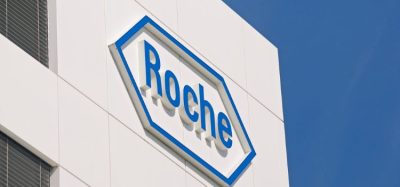Personalised mRNA cancer therapy shown to boost immune response
Posted: 8 August 2024 | Catherine Eckford (European Pharmaceutical Review) | 1 comment
The individualised neoantigen therapy could enable a precise, durable immune response, based on study findings in melanoma and lung cancers.


An investigational, individualised neoantigen therapy, with personalised encoded mRNA, has demonstrated potential to enable patient’s immune system to target cells that cause cancer.
Researchers from the related study highlighted that it has been challenging to develop engineering therapies that give the immune system enough training to identify a patient’s neoantigens.
What did the neoantigen therapy study find?
The Phase I study evaluated the novel individualised neoantigen therapy mRNA-4157 (V940). Of 16 patients, four had resected non-small cell lung cancer and 12 patients had resected cutaneous melanoma, the researchers stated.
They encoded the patients top neoantigens into each mRNA therapy. Melanoma patients were treated with both mRNA-4157 (V940) and the immune checkpoint inhibitor pembrolizumab.
Analysis from the study revealed that mRNA-4157 (V940) “induced multiple forms of T cell proliferation, both alone and in conjunction with pembrolizumab”. mRNA-4157 (V940) treatment was not associated with dose-limiting toxicity, the researchers reported.
The findings pointed to the long-term potential of the mRNA therapy. T cell response to neoantigens was found to remain 30 weeks post-treatment, according to study data.
The researchers highlighted that vitally, the low toxicity of mRNA-4157 (V940) could help simplify “combining individualised neoantigen therapies and other immunotherapies”.
we’ve shown that we can develop an individualised neoantigen therapy [that can] amplify existing responses and induce brand new, long-lasting immune responses”
“We are entering an era in which we have the tools to make cancer therapies more precise and more personalised,” remarked corresponding author Dr Justin Gainor, Program Director of the Center for Thoracic Cancers at MGH.
“…we’ve shown that we can develop an individualised neoantigen therapy by leveraging the specific characteristics of a given patient’s tumour and cell-type. This therapy was both safe and immunogenic, meaning that we were able to amplify existing responses and induce brand new, long-lasting immune responses,” Dr Gainor added.
“The excitement around immune therapies, including this one, is their potential for durability,” Gainor explained. “We showed that this [individualised neoantigen therapy] was able to generate new immune responses against neoantigens, and it appeared that those immune responses were maintained at later time points.
“The potential for a precise, durable immune response is one of the most exciting aspects of therapies like this one. This may enable a new treatment paradigm for oncology care, particularly in the adjuvant setting.”
The paper highlighting the Phase I study results for the personalised mRNA therapy was published in Cancer Discovery.
Related topics
Anti-Cancer Therapeutics, Big Pharma, Data Analysis, Drug Development, Drug Safety, Immunotherapy, Industry Insight, mRNA, Personalised medicine, Research & Development (R&D), Technology, Therapeutics










Great article. It’s good to see mRNA vaccines progressing through clinical development.